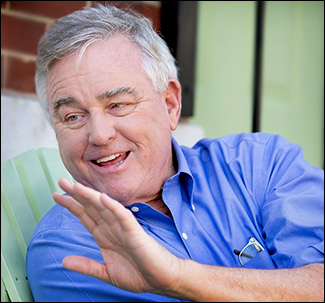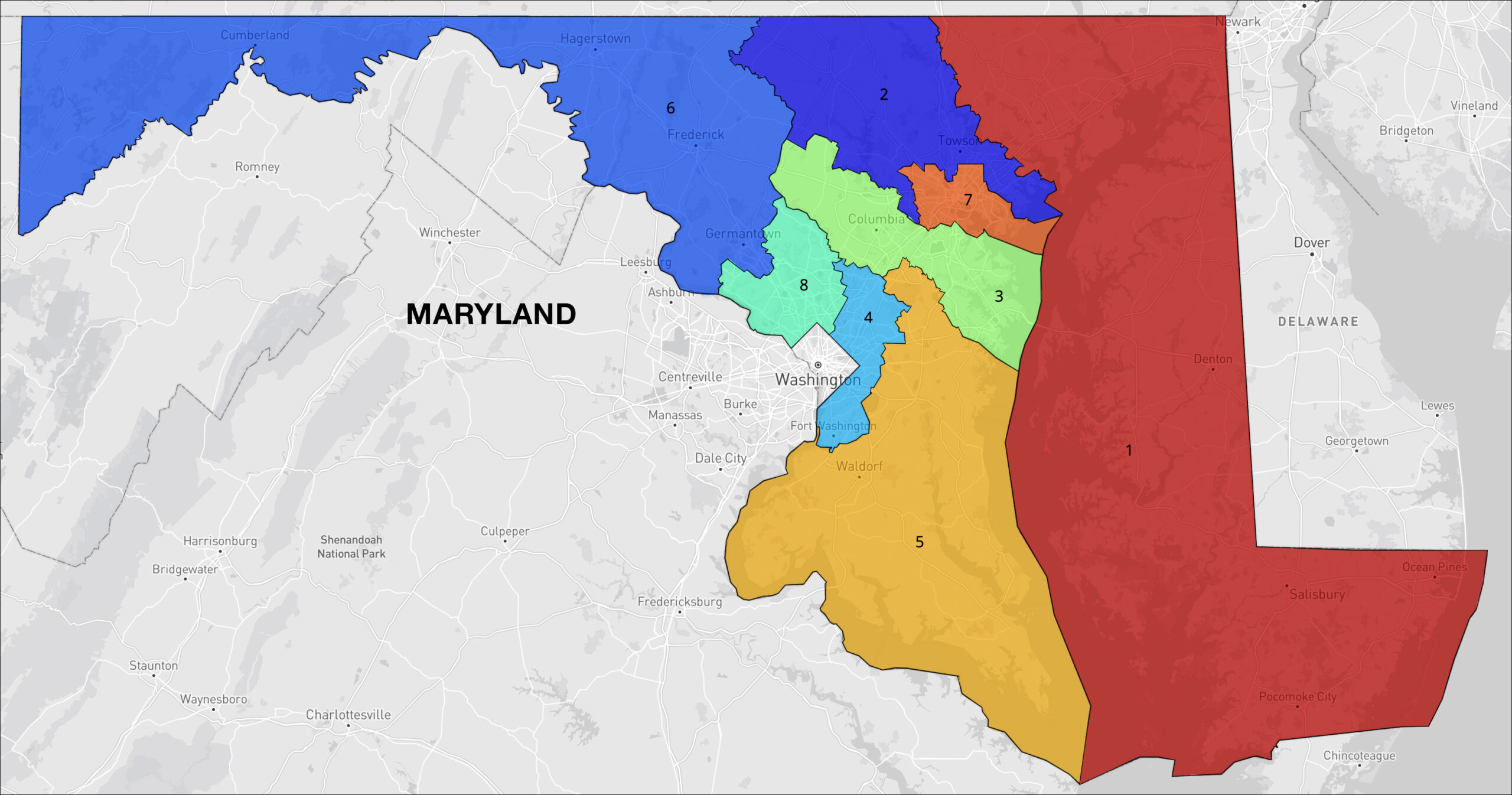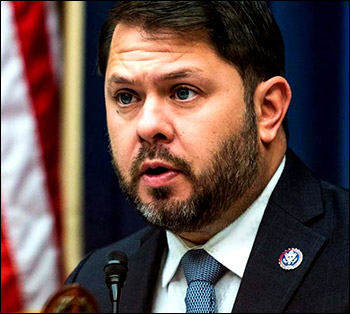By Jim Ellis — Thursday, June 12, 2025
House

Virginia Rep. Gerry Connolly passed away Wednesday, May 21, 2025.
Gov. Glenn Youngkin (R) has scheduled the special election to replace the late Rep. Gerry Connolly (D-Fairfax) for Sept. 9. It is now up to the local party congressional district committees to decide upon the type of nomination system to employ. Democrats have chosen the “firehouse primary” option, which features only a few polling places throughout the district. The firehouse special primary is scheduled for June 28. Republicans have yet to decide between a firehouse primary or a party convention.
Democrats will be heavily favored to hold the seat. The leading candidates are Fairfax County Supervisor James Walkinshaw (D) and state Sen. Stella Pekarsky (D-Centreville).
CO-3 — Former Colorado Republican Party Vice Chair Hope Scheppelman announced a primary challenge from the right to freshman Rep. Jeff Hurd (R-Grand Junction). It remains to be seen if this challenge will develop into a serious campaign. Irrespective of the primary situation, Rep. Hurd will be favored for renomination and re-election in a district where the Dave’s Redistricting App statisticians calculate a 52.6R – 43.3D partisan lean.
GA-13 — State Rep. Jasmine Clark (D-Lilburn) has joined the crowded Democratic primary challenging veteran Rep. David Scott (D-Atlanta). Previously announced major candidates are state Sen. Emanuel Jones (D-Decatur) and former Gwinnett County School Board chairman Everton Blair (D). While Rep. Scott says he plans to seek a 13th term in the House, he has major health concerns, and the prevailing political opinion is that he will announce his retirement before the state’s March candidate filing deadline.
MD-5 — Saying the 85-year-old longest-serving House Democrat should retire due to his advanced age, public safety consultant Harry Jarin, 35 years old, announced a Democratic primary challenge against former House Majority Leader Steny Hoyer (D-Mechanicsville). For his part, Rep. Hoyer has yet to say whether he will seek a 24th term, but most expect him to run again. He will be 87 years old at the time of the next general election.
NE-2 — State Sen. John Cavanaugh (D-Omaha), whose father, former US Rep. John J. Cavanaugh, III (D), served two terms in the House during the 1970s, announced that he will run for the congressional seat in 2026. He will face a crowded Democratic primary featuring political consultant Denise Powell, surgeon Mark Johnston, and attorney Van Argyrakis. The eventual nominee will face five-term Rep. Don Bacon (R-Papillion) who says he will announce whether he will seek another term during the summer. Nebraska’s 2nd District continues to be one of the most competitive in the country.
PA-8 — Former six-term Congressman Matt Cartwright (D), who lost his seat last November to freshman Rep. Rob Bresnahan (R-Dallas Township/Scranton), said he will not return for a re-match next year. This leaves the Democrats with no major candidate in a what is projected to be a competitive 2026 congressional race. Republicans ousted two incumbent Pennsylvania House members in 2024, Reps. Cartwright and Susan Wild (D-Allentown). Neither are forging a comeback attempt next year.
WA-9 — Former Seattle City Councilwoman Kshama Sawant, a self-identified socialist, announced that she will challenge veteran Rep. Adam Smith (D-Bellevue) as an Independent in next year’s general election. Sawant served three terms as an at-large City Councilwoman, leaving office in 2023. She survived a recall attempt in a close 2021 vote. Rep. Smith, the Ranking Minority Member of the House Armed Services Committee, is expected to seek a 16th term and will be a prohibitive favorite for re-election.
Governor
Arizona — A new survey that the American Commitment organization sponsored (May 23-25; 1,147 likely Arizona Republican primary voters; online) finds Rep. Andy Biggs (R-Gilbert) moving into a commanding lead over 2022 gubernatorial candidate Karrin Taylor Robson for the state’s Republican gubernatorial nomination. According to the ballot test result, Rep. Biggs would lead Robson, 57-25 percent.
Earlier, Noble Predictive Insights released their general election poll (May 12-16; 1,026 registered Arizona voters; online) and projects Gov. Katie Hobbs (D) to be leading Rep. Biggs 40-38 percent, and Robson by a similar 41-39 percent count. This latter poll confirms what has been expected, that the 2026 Governor’s race will yield another hotly contested political battle.
Connecticut — In a news conference with reporters to discuss the end of the Connecticut legislative session, Gov. Ned Lamont (D) sent clear signals that he is heading toward announcing his candidacy for a third term. The political field has largely been frozen awaiting the Governor’s political decision. Should he announce for re-election, Lamont will be rated as a clear favorite to secure a third term.
Florida — Former Rep. David Jolly, who won a 2014 special election in the Pinellas County seat as a Republican lobbyist but then lost re-election in 2016 to party switcher Charlie Crist (D), became a GOP critic on national news shows. He switched his party identification to Independent after losing the House seat and then moved to the Democratic column.
This week, Jolly announced his candidacy for the Democratic gubernatorial nomination. He becomes the first significant Democrat to enter the race. While Jolly may be competitive for his new party’s nomination, Republicans will be favored to hold the Governorship in an open election. Gov. Ron DeSantis (R) is ineligible to seek a third term. Rep. Byron Donalds (R-Naples) is the leading Republican gubernatorial candidate.
Iowa — While most political observers are watching whether state Attorney General Brenna Bird will join the open Republican gubernatorial primary to battle Rep. Randy Feenstra (R-Hull/Sioux City) for the party nomination, state Rep. Eddie Andrews (R-Johnston) announced that he is joining the race. State Sen. Mike Bousselot (R-Des Moines) is also a GOP gubernatorial candidate. Democrats are coalescing behind their lone statewide elected official, state Auditor Rob Sand. Gov. Kim Reynolds (R) is not seeking a third term.
Maine — A newly published Pan Atlantic research firm poll (May 12-26; 840 likely Maine voters; 325 likely Maine Democratic primary voters; online) finds businessman Angus King, III leading the open Democratic gubernatorial primary with 33 percent preference. In second place is Secretary of State Shenna Bellows at 24 percent. Following is unannounced candidate Hannah Pingree with 20 percent while former state Senate President Troy Jackson posts 13 percent support. King is the son of Sen. Angus King (I-ME), while Pingree is Rep. Chellie Pingree’s (D-North Haven/ Portland) daughter. Gov. Janet Mills (D) is ineligible to seek a third term.
South Carolina — Democratic state Rep. Jermaine Johnson (D-Hopkins), a former basketball star for the College of Charleston, has formed an exploratory committee to test his chances in the open Governor’s race. Rep. Johnson is the first Democrat to make any move toward running for Governor which will be an uphill open general election race against the eventual Republican nominee.
City & State
Detroit — According to a new Detroit News and WDIV-TV poll that the Glengariff Group conducted (May 27-29; 500 likely Detroit mayoral election voters; live interview), City Council President Mary Sheffield (D) has a large lead to replace incumbent Mayor Mike Duggan, who is running for Governor as an Independent. The poll results post Sheffield to a 38-14-9-8 percent advantage over local Pastor Solomon Kinloch (D), former Detroit Police Chief James Craig (R), and ex-City Council President Saunteel Jenkins (D). The city’s jungle primary is scheduled for Aug. 5.
New Orleans — A JMC Analytics poll (May 27-28; 500 likely New Orleans mayoral election voters; live interview) sees New Orleans City Councilwoman Helena Moreno (D) capturing a majority vote for the upcoming open Oct. 11 jungle primary to replace term-limited incumbent LaToya Cantrell (D). According to the polling data, Moreno would lead City Councilman Oliver Thomas (D) 52-23 percent, with no other candidate in close proximity. If no one receives majority support on Oct. 11, the top two finishers will advance to a Nov. 15 runoff election.







